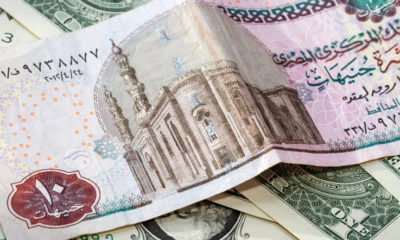Nigeria’s inflation moderated slightly to 18.12 percent year-on-year in April from 18.17 percent posted in the month of March, according to the latest report from the National Bureau of Statistics (NBS).
Even though food inflation also slowed down to 22.72 percent in the month, compared to 22.95 percent filed in the previous month, experts have said the nation’s inflation rate remained high and above the 9 percent target of the Central Bank of Nigeria.
Speaking on the inflation report, the Head of Research at Agusto Consulting, Mr. Jimi Ogbobine, said: “We can’t say we are winning the war against inflation because it is still above 18 per cent; especially because at 18 per cent, inflation is still at double-digit, whereas the limit of the CBN’s inflation target is nine per cent. And that means is that we can still be referred to as a high inflation environment.
“I think we need to start looking at our current inflation as a security issue even beyond the basic of economics and beyond economic preview. It means it is affecting lots of families, it is increasing poverty levels and it means that the purchasing power of disposable income is weak and when you bring in high unemployment and an increase in working poor.”
Another expert, Mr. Ayodeki Ebo, the Head, Retail Investment, Chapel Hill Denham, said: “The inflation figures came as a surprise, but looking at it, it was majorly due to the high base effect of food inflation, which was a result of last year’s lockdown, which started in April and led to a sudden jump in prices.”
Commenting on what can be done to rein in Nigeria’s high inflation rate, Ebo said: “The issue of insecurity needs to be tackled and we need to also increase production so there is enough supply.
“We need to also intensify investments into agriculture so that yields can also increase. Other things are long term, which would help reduce distribution like having a functioning rail network would really impact on the cost of distribution.”
On his part, Prof. Uche Uwaleke, the Chairman, Chartered Institute of Bankers of Nigeria (CIBN), Abuja Branch, said the risks to the inflation outlook were still present.
“It is difficult to interpret this marginal drop in headline inflation to mean the beginning of a downward trend in the inflation rate.
“This is because the risks to the inflation outlook are still present. These include insecurity, which directly impacts food inflation, the recent devaluation of the naira, and the likely hike in the pump price of fuel and electricity tariffs,” he added.
Accordingly, Managing Director/Chief Executive, Dignity Finance and Investment Limited, Dr. Chijioke Ekechukwu, explained that the moderate decline was “not a turning point” in inflationary pressure.
He said: “It is only a marginal drop which may have arisen from one or a few reasons. The factors that have caused hyperinflation have not improved.
“We have not had an improvement in security, they have rather worsened. The prices of petroleum products are expected to align with global prices of crude oil, as the oil subsidy has technically been discontinued.
“We are therefore not expecting a further drop in inflation rate, if well measured, in the next month.”

 Education4 weeks ago
Education4 weeks ago
 News3 weeks ago
News3 weeks ago
 Business3 weeks ago
Business3 weeks ago
 Technology3 weeks ago
Technology3 weeks ago
 Investment4 weeks ago
Investment4 weeks ago
 Investment3 weeks ago
Investment3 weeks ago
 Telecommunications4 weeks ago
Telecommunications4 weeks ago
 Banking Sector3 weeks ago
Banking Sector3 weeks ago



























